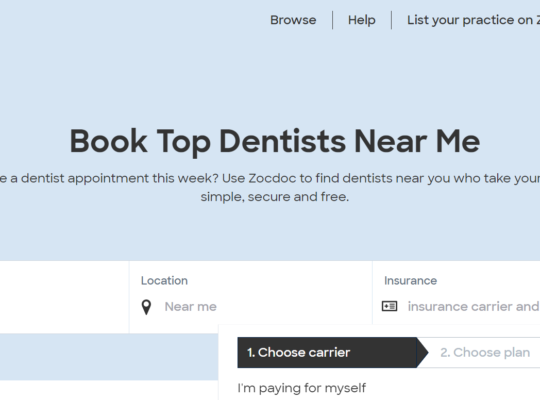Meditation has been practiced for centuries as a way to improve mental and physical well-being. Today, mindfulness meditation is one of the most popular forms of meditation, and for good reason.
If you’re looking to improve your overall well-being, mindfulness meditation is an excellent start. In this guide, we’ll show you everything you need to know about mindfulness meditation in order to get started. We’ll cover the basics of what mindfulness is, how it works, and how it can benefit your overall health.
What is mindfulness meditation?
Mindfulness meditation is an ancient practice that has been found to help people focus and relax. It has also been shown to decrease anxiety, stress, and depression symptoms. Mindfulness meditation is simple to learn and can be practiced anywhere, at any time. Here are three tips for getting started with mindfulness meditation:
1. Sit comfortably in a quiet environment with your eyes closed.
2. Allow your body and mind to settle into the present moment.
3. Spend at least five minutes each day practicing mindfulness meditation, gradually increasing the time as you become more comfortable with the practice.
How does mindfulness meditation work?
Practicing mindfulness meditation can help you focus, relax, and reduce stress. Mindfulness is a practice that focuses on living in the present moment. It involves paying attention to your thoughts, feelings, and sensations without judgement. When practiced regularly, mindfulness can help improve your overall mental health and well-being.
There are many different types of mindfulness meditation, but the most popular is called focused breathing meditation. To do this type of meditation, you first need to find a comfortable place to sit or recline in. Next, close your eyes and take a few deep breaths in and out through your nose. Focus on your breath as it enters and leaves your body. If you find it difficult to concentrate, try focusing on a mantra (a word or phrase that you repeat to yourself) or focusing on the sensation of air touching your skin.
Mindfulness can be helpful for reducing stress, improving mental health, and improving sleep quality. If you’re new to mindfulness meditation or feel like it’s not working for you right now, don’t worry! It may take some time for it to work its magic on you. Just keep practicing every day and see how it changes your life!
Benefits of mindfulness meditation
Mindfulness meditation has many benefits that can be helpful in your life. It is a form of mindful self-care that helps you focus and pay attention on the present moment.
When you are practicing mindfulness, you learn to become more aware of your thoughts and feelings, as well as the environment around you. This can help you manage stress, improve your mental health, and increase your overall well-being.
Some of the benefits of mindfulness meditation include:
1. Increased focus and concentration. When you practice mindfulness, you learn to focus on what is happening in the present moment. This can help you stay organized and focused during tasks, and it can also help you to better concentrate when studying or working on a project.
2. Improved mental health. When practiced regularly, mindfulness meditation has been shown to improve mental health symptoms such as anxiety, depression, and stress levels. In particular, mindfulness practices have been found to be helpful for reducing rumination (thinking about negative events over and over), improving self-awareness, and promoting positive emotions.
3. Better sleep habits. Mindfulness meditation has been shown to improve sleep habits in both adults and children by reducing anxiety and promoting relaxation techniques before bedtime. Additionally, it has been found to be effective in preventing night terrors in children and decreasing disruptive behavior during sleep in adults.
4. Enhanced concentration skills for other activities. Like any skill set, practicing mindfulness will also help you better perform other
How to start practicing mindfulness meditation
If you’re looking to try mindfulness meditation, there are a few things you need to do before getting started.
First, find a place where you can be alone and quiet. This can be at home, in nature, or in a spare room at the office.
Then, sit down in a comfortable position with your spine straight and your eyes closed. Take a few deep breaths and focus on your breath. When your mind starts to wander, gently bring it back to the breath. Repeat this exercise for 10 minutes or as long as you feel comfortable.
When you’re ready to begin practicing regularly, find an app or website that offers guided meditations. These programs will walk you through each step of the process and provide tips along the way.
Tips for staying mindful during meditation
Meditation isn’t just for people who want to clear their heads and get some peace and relaxation. In fact, if done correctly, meditation can be a surprisingly effective way of enhancing your focus, productivity, and mental well-being.
To get started with mindfulness meditation, it’s important to know what it is and how to do it. Mindfulness meditation is simply focusing on your breath or some other simple object or body part in order to relax and de-stress. There are many different types of mindfulness meditation, but the most common one is focused attention on your breath. Here are some tips for staying mindful during meditation:
1) Find a comfortable place to sit or recline in. You don’t have to be seated in lotus position or even still; you can simply relax your body while keeping your eyes closed or open if you prefer.
2) Start with 10 minutes of regular practice each day. If you find that 10 minutes is too short or long for you, try starting with 5 minutes the first few times and gradually increasing the time as you become more comfortable with the practice.
3) Make sure that you are putting forth effort while meditating; don’t just go through the motions because it feels “boring” or “mundane”. Be present and attentive to what you are doing. If at any point you find yourself getting distracted, take a few deep breaths and









